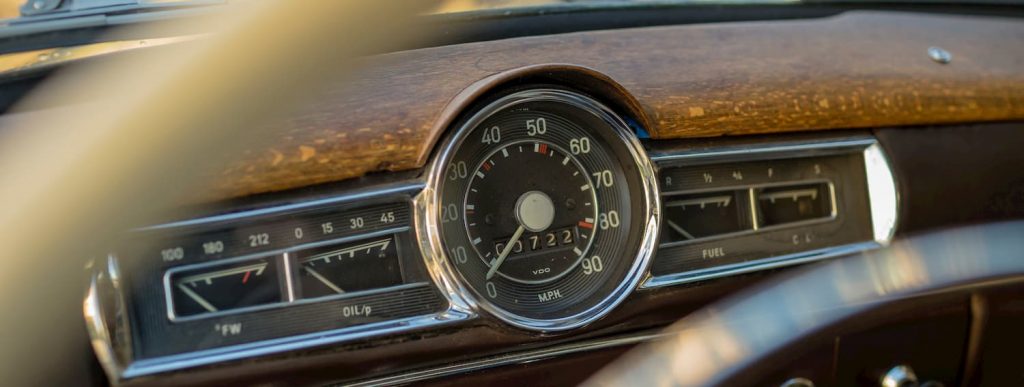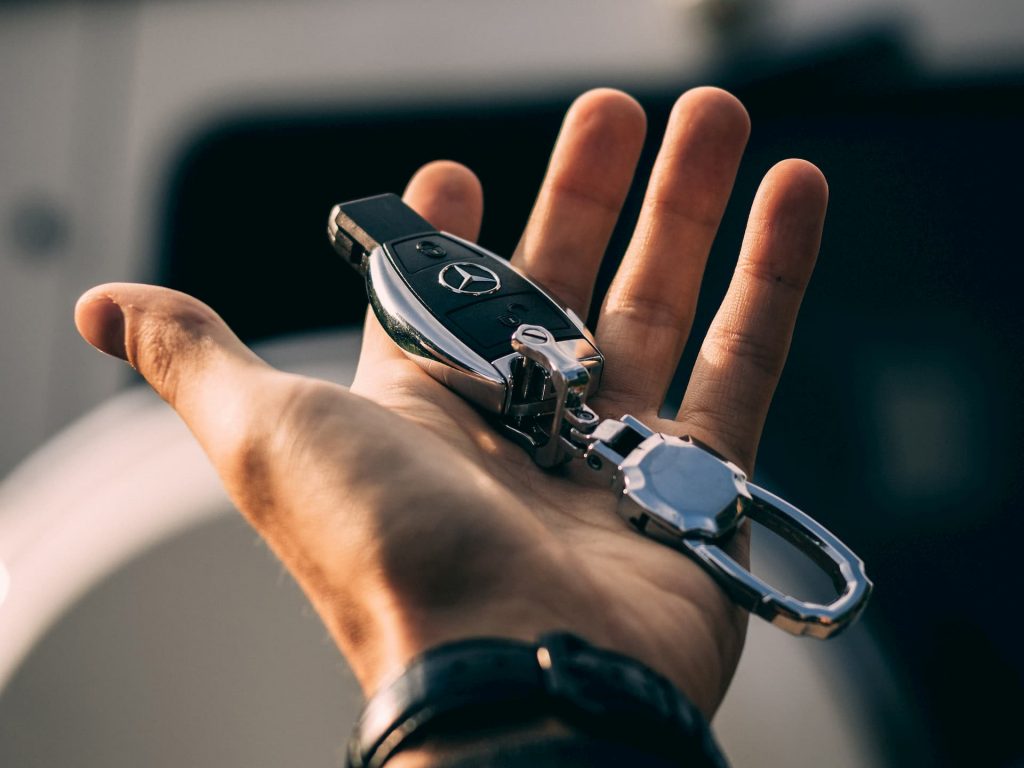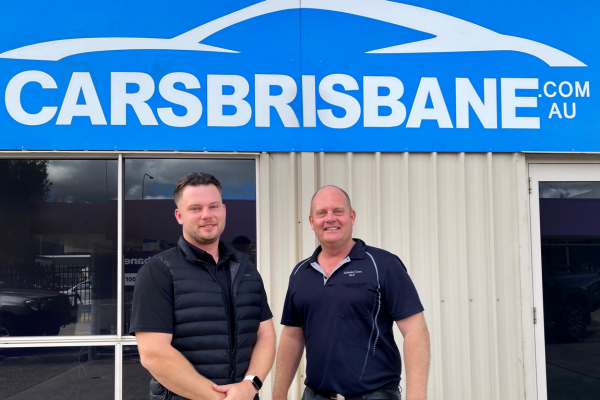Private online transactions always come with a degree of risk, particularly if the item is high value. Car sales scams don’t just happen when you are trying to buy a car. If you don’t do your due diligence you could fall victim to a number of car selling scams too. As the saying goes, “forewarned is fore-armed“, so it’s important to keep your wits about you if you decide to sell privately.
Be aware of the different types of car scams that you could fall foul of when buying or selling your car via any of the many online car marketplaces – and learn how to avoid them.
Common Car Buying Scams in Australia
Unfortunately, there are a number of common car buying scams that can be found on online platforms. These can happen on Gumtree, Facebook, eBay and other private platforms such as Carsales, Carsguide and more.
Unconventional Payment Methods
For the most part, the exchange of money is one of the more critical parts of the used car buying process. It’s the time in which you as a buyer are at your most vulnerable!
Online scammers often use an unconventional payment method to try and separate you from your cash. They may insist that you pay a deposit through an unfamiliar app or bank transfer, only to disappear without much of a trace. It’s often best for you to stick to what you know. At the end of the day, it’s your money and it should be your choice how you hand it over.
We recommend following the payment guidelines of the platform that you are using. Some platforms such as eBay have payment methods built into their platform, which may be able to protect you from fraudulent dealings.
For private sales, paying through PayPal or with cash are the most popular choices. Read our full breakdown on choosing payment methods here for more information regarding your options.

Below Average Pricing
While many would like to assume that they’ve stumbled onto a bargain, a suspiciously low price for a car that should be priced higher may be a sign of some shady dealings. We should preface this by saying that a low price is not a tell-tale sign that you’re going to be scammed! However, it does pay to be cynical.
Low prices attract the highest number of potential buyers, and is a common tactic used by people on the lookout for buyers to dupe. If the car you’re looking at is well below the price you have seen listed elsewhere, ask yourself why this is the case. If the car has no underlying issues, cosmetic damage, or anything else to pull the price down, it may be too good to be true.
Rushed Transactions
By rushing a transaction, a car buying scammer is attempting to force you into making a decision quickly without proper consideration. A common story they will fabricate is that they need to sell their car quickly before being deployed overseas as part of the military, or that they need the cash desperately. This, combined with a cheap price, can make for a very enticing offer!
Don’t allow yourself to be convinced by a short timeline! Do your due diligence and don’t give in to the seller’s demands unless you have taken the necessary steps to verify the sale as legitimate.
Not Allowing for Proper Inspection
If your seller refuses you the opportunity to inspect the condition of the car for any reason, this should be considered a major red flag. We would never recommend buying a car unseen, as this can lead to significant issues with the car down the track (if the car even exists).
Scammers may do this by insisting the car is located in another state or country. They can be very creative in coming up with excuses, so be vigilant.
Allowing an independent mechanic to examine the car can be instrumental in your car buying process. They’ll be able to tell you whether it has any issues that need to be addressed and give recommendations on whether this purchase is a good idea.
Suspiciously Low Odometer Readings
This one is slightly less common and is less of a car buying scam and more of a dishonest way of selling a car for more than it’s actually worth. They may alter the odometer reading on the car dash to give buyers the impression that the car has done significantly less driving than it actually has.
A general rule is that cars will drive anywhere between 15,000 to 20,000km yearly. Divide the number of kilometres with the years in use to see if this matches up. Of course, this is not a hard and fast rule as everyone uses their car differently. However, it can be a great way to gain a rough understanding of a ‘normal’ amount.
If you have any suspicions about the car’s odometer reading, ask the mechanic that you ask to inspect the car of their opinion. They can give you an impression of roughly how many kilometres they think the car has done, based on the condition and wear and tear they see.

Text or Email-Only Sellers
Sellers that aren’t forthcoming with information about themselves are the ones that need to be avoided when it comes to a potential car sales scam. If your seller only communicates through text or email, it’s likely they are doing their best to stay anonymous.
One way to test the legitimacy of a seller is to call the number they are texting you from. If they refuse to answer, the line doesn’t work or anything else happens to make you uncertain, exercise caution.
Public Meetings
If your seller is only offering up public meeting places for you to inspect the car, you should ask yourself what their motivation for this is. Meeting in a public place may mean that they’re attempting to hide their identity from you, by not allowing you to attach them to a place of residence.
Take this with a pinch of salt, however, as some people are uncomfortable inviting strangers to their home, which is completely understandable. Assuming that a potential deal is a dodgy one based on this alone would be wrong. Pair this with any of the other strange behaviours noted in this article and your hunch may well be correct that this is a car sales scam.
Common Car Selling Scams in Australia
Deliberate Low Evaluations
One of the oldest tricks in the book. Your potential buyer may actually be a professional car ‘flipper’ that will offer you a price well below market value, claiming they know the ‘book value’ of your car, that multiple things are wrong with it, and will try to justify this with a mechanic they have brought along. These scammers operate by buying cars cheap and selling them for a profit. How do they get cars so cheap? They take advantage of sellers who haven’t done their research or who’ve been trying to sell for a while with no success.
When preparing to sell your car, it’s important you’ve done your homework on the valuation of your car. Look for other listings that are the same model with similar mileage, check out a price estimator or have a chat with your mechanic. Alternatively, check out this guide for tips on pricing your car to sell.
When it comes to private sales, knowledge is power.
Bounced Cheques
Another long-standing favourite that has caught many a seller out: the buyer knowingly writes a bad cheque as ‘payment’ for your car. The problem with this being that by the time you go to cash the cheque you find out it’s fake which leaves you with no car, no payment, and no chance of getting it back. A buyer asking to pay by cheque just means you need to tread carefully to ensure you get paid. Either call the bank to verify funds before accepting a cheque or insist on a banker’s draft or cash payment.
If you plan to accept a cheque, make sure the buyer knows they won’t be getting the keys until the cheque has cleared. If you’re not comfortable with cheques and aren’t sure what other payment options are better, read through this guide to accepting payments for private car sales to get a better idea of what the best payment methods are when you’re selling privately.
Overpayment on Cheques
Any sort of overpayment offer tends to be a red flag. In this case be particularly cautious of a buyer who writes out a cheque over the agreed price and requests a cash refund from you. As mentioned above, when dealing with a cheque payment verifying funds is important, as is explaining that possession of the vehicle won’t be transferred until funds have been cleared. As a rule of thumb when making a sale, you want monetary transfers to be one way: from the buyer, to you.
Solo Test Drives
Buyers involved in car sales scams might ask to take your vehicle for a test drive, offering to leave their driver’s license with you as they go. However, licenses can be faked which means you just let a stranger drive off in your car and the chances of you seeing it again are not high. When letting a potential buyer have a test drive, it’s best to accompany them on the test drive to ensure they don’t drive off with your vehicle. Another trick to be aware of is the buyer trying to get you out of the car during the drive. A ruse like wanting to check the tire pressure or engine condition mid-drive is a red flag that has the potential to end with you on the side of the road with no car and no payment. Always wait for the buyer to get out of the car before you do.

Aggressive Car Theft
Although cases of violence are rare, always be on guard when you meet up with a respondent to an ad. Make sure that when you arrange a meeting with a buyer, you do so in daylight, in a place that’s visible and public, and ideally have a friend or family member accompanying you. All of this reduces the risk of something unsavoury happening or if the worst-case scenario plays out, you’ll have witnesses.
Offers to Buy Car Unseen
Be wary of anyone who offers to buy your car sight unseen. When considering an offer, always screen respondents to ads to make sure they are serious, well-intentioned, have the necessary financing sorted, possess a valid driver’s license, and are prepared to meet up. Also keep a paper trail of all documentation that changes hands as it is your responsibility to ensure that this is in order before handing over the keys. This way you will be able to follow up anything that turns out to be a car sales scam with the relevant authorities.
Tips for Avoiding Online Car Sales Scams
Avoiding scam car sales online requires you to exercise caution. As with any investment, you’re going to want to put in some groundwork prior to any exchange of cash. To avoid being taken advantage of, there are several things that you can do:
1. Take your time
Don’t allow yourself to feel pressured to make a quick transaction. You need to invest time into your decision if you want to ensure that the investment is sound.
2. Follow professional advice when selling
Listen to the mechanic you’ve asked to look at the car, and follow the guidelines laid out by the online platform you decide to buy with. They all have their own preferred ways of making payments and transferring ownership, so listen to that advice.
3. Document everything
Make sure that you document everything. Keep a record of the seller or buyer’s information, as well as documentation of the sale in the form of a written receipt. Also, make sure that the transfer of registration is recorded too. Keep it all!
4. Remain vigilant
We cannot stress the importance of being cautious enough. With such a significant investment or sale, you can’t be too careful. If you feel at all uncomfortable with the transaction you should simply pull out. Remember: you don’t owe them anything!
If we leave you with one final remark, it’s this old adage: if it sounds too good to be true, it probably is! Online car sales scams are an unfortunate part of life. So, keep your eyes peeled during any potential transactions.
How to Avoid Car Sales Scams Online Altogether
Scammers that make use of the many online platforms available for car sales benefit from the ability to be relatively anonymous. If you want to avoid this entirely, you need to make sure you are buying or selling with a trusted player within the industry.
At Cars Brisbane, we’re one of Brisbane’s most established car buyers. If it meets our standards, we can provide an instant quote and buy your car immediately with cash. For over 10 years we have developed a reputation for providing sellers with the price their car is actually worth. If you’re unsure of how to navigate your used car journey, we can help.
Sell Your Car For Cash Today
On the spot valuation and cash payment, all vehicle types considered


